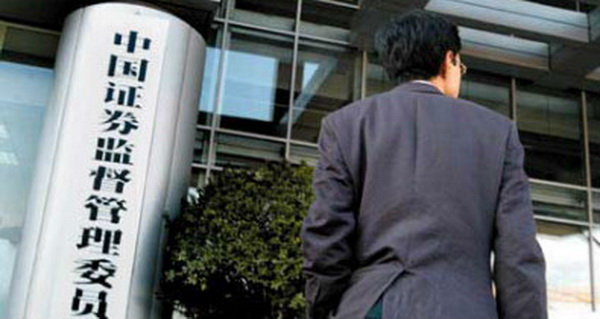

Highlights from the EO print edition, No. 623, Jun 10, 2013

The Benefits of a Place on China's IPO Examination Committee
News, page 1
~ On June 7, China's Securities Regulatory Commission (CSRC) officially released the draft of new rules aimed at reforming the process of listing companies on the country's stock markets. The focus of the reform is to continue to expand the amount of information that companies have to reveal and also introduce measures that will improve the veracity of information provided by companies seeking to list.
~ At the end of May, the securities regulator also announced the names of the 25 people who would sit on the CSRC's IPO Examination Committee for the country's two main boards, Shanghai and Shenzhen. Aside from one new appointment, all the members of the new examination board also sat on the previous committee. The CSRC appoints a new committe each year, but in the 5 years from 2008, the membership of the committee has remained almost the same.
~ Reporters from the EO examined links between the members of the committee, who are supposed to act as independent arbiters, and the various intermediate agencies involved in helping to arrange the listing of a company on the stock market. Reporters from the EO went back and looked at all the data about IPO applications from the past 5 years and discovered that those companies with links to members of the examination committee appeared to have benefited from this association.
~ Many companies that are seeking to list will often search out law or accounting firms that are in some way connected to a member of the approval board, as they believe that such an association will strengthen the chances of their company's IPO being approved.
Original article: [Chinese]
Commercial Bank Bankruptcy Regulations Could be Introduced This Year
News, page 1
~ Regulations aimed at standardizing what should happen if one of China's commercial banks were to go bankrupt may be sent to the State Council for approval later this year. The regulations have been under discussion for five years. The China Banking Regulatory Commission (CBRC) is leading the running on the legislation but is also seeking input from the country's central bank and other ministries.
~ "A draft proposal should be sent to the State Council this year. After the new government came to power, the premier Li Keqiang raised this issue, he asked that a plan be submitted before the end of the year," a person close to the CBRC told the EO. "That said, progress has been slow, currently there's a bottleneck caused by a lack of coordination between different deparments and the scope of the regulations."
~ The same source told the EO that the new regulations will be specifically focused on commercial banks, rather than, as in an earlier draft, broader regulations that encompass bankruptcy procedures for the banking and financial industy.
~ The general principles of the legislation however have not changed. There a four main areas of focus. The first is about taking precautions to prevent bankruptcies, the second is about stability and preventing any bankruptcies from threatening the broader financial system. The third focus is to minimize the costs of such measures and the fourth focus is in relation to a fair distribution of any losses incurred as a result of a bankruptcy.
~ The regulations are also likely to be closely linked to the introduction of deposit insurance (存款保險(xiǎn)). The Central Bank is said to have already submitted a plan to the State Council which involves the introduction of deposit insurance.
~ There are currently two main issues that are holding up progress on the regulations. The first relates to tensions between the People's Bank of China and the CBRC. The Central Bank argues that once they've introduced a system of deposit insurance there won't be any need for a bank bankruptcy code.
~ The second area of contention is how wide the scope of the regulations should be. Currently it appears that CBRC wants to limit it to only cover commercial banks but there are others who argue for broader regulations that apply to the whole financial industry.
Original article: [Chinese]

CRC to Start Rail Freight Reform
News, page 5
~ According to China Railway Corporation (CRC), reform of China's freight system will be formally launched on June 15. This is the first major change to the internal workings of the body since the Ministry of Railways was broken up into various agencies and companies.
~ The Economic Observer learned that currently the CRC is trying to separate the national rail network from freight transport. The reform will impact on the scope of freight transport, processing procedures, organization and charges for freight.
~ The railway stations of local railway bureaus will only be responsible for loading and transporting. The freight transport and sales centre of each local bereau will be placed in charge of drawing up a transportation plan and pricing.
~ The reforms should make it easier for companies to organize transportation online or over the phone. Rail freight offices could also soon be offering to-the-door delivery services.
Original article: [Chinese]
Local Government Debt Repayments Due
News, page 6
~ The first phase of government bond issuing by the central government on behalf of local governments began on June 5 and included Xinjiang, Anhui, Fujian and Gansu Provinces. The total value of the bonds is 42.2 billion yuan, with both three-year and five-year certificates issued. However, this is only a small portion of the overall local government debt.
~ According to the National Audit Office (NAO), by the end of 2010, local government debt amounted to 10.7 trillion yuan - of which 46 percent was involved with financing institutions.
~ On May 20, Dong Dasheng (董大勝), deputy auditor-general of NAO, estimated that current local government debt could be 15 to 18 trillion yuan, while former Minister of Finance Xiang Huaicheng (項(xiàng)懷誠) estimated the figure to be over 20 trillion yuan.
~ What's worrying local governments now is that many debts are due to be repaid this year. According to incomplete statistics obtained by the Economic Observer, 1.2 trillion yuan in local government debt is due in 2013. In addition, 138.4 billion yuan in three-year local government bonds that were issued by the central government in 2010 are due this year with interest.
~ "Between investment and people's livelihood, governments will first choose people's livelihood," said Professor Wang Yongjun (王雍君) from The Central University of Finance and Economics. "So the investment that promotes economic development lacks funds and the pressure repaying of debts is bringing to local economic development is obvious."
Original article: [Chinese]

International Classes for Chinese Students
Page 10, Special Feature
~ In 2012, the number of Chinese students going abroad to study was 399,600 – a 17.65 percent increase over the previous year. In order to get a head start on the skills needed to attend university abroad, many high schools in China are starting to offer international classes taught in English by foreign teachers. But these classes come at a price
~ The No. 11 High School of Beijing is one of these schools. The tuition for an international class at the school is 90,000 yuan per year – well beyond the 1,000 yuan average for normal high school tuition in China. However, this is a bargain compared to what students pay for overseas high schooling. The cost for going to a western boarding high-school costs an average of about 300,000 yuan for Chinese students.
~ A teacher of No. 11 High School said that most students in international classes come from powerful and wealthy families.
~ "Almost every class is in English besides politics and history," said Liu Tingting (劉婷婷), a student at the school. "It’s very stressful at first unless your English is excellent, and most students here are good at studying."
~ Besides language difficulties, Liu said she had to get used to ridicule from others outside the school. After she joined, she heard people calling her and her classmates "Fu Er Dai(富二代)," a pejorative term for second-generation rich people. She eventually got used to it though. "Nothing else matters as long as I have my goal," she said.
~ Li Gang (李罡), a businessman in Tianjin, says foreign education is better than China's. "Money is no object," he said. "A problem that can be solved by money is not a problem at all. I will spend as much as it takes to provide my kids with a good education."
Original article: [Chinese]
Overseas Capital Flows into Chinese Real Estate
Property, Page 39
~ According to China Index Research Institute (中國指數(shù)研究院), the amount of money Shanghai real estate companies received in financing from abroad from Jan 1 to May 9 was 75.9 billion yuan - 25 percent more than during the same period last year. Low interest rates and quantitative easing policies were the main drivers behind the high capital injections.
~ According to analysis from the World Bank, the amount of capital flowing into emerging markets in the first four months of 2013 was $64 billion - 42 percent more than during the same period last year.
~ The average interest rate on bonds issued by Chinese real estate companies in international markets was 8 to 9 percent in the first half of 2013.
~ "Entrepreneurs have high expectations for sales in 2013," said Bai Yanjun(白彥軍), deputy director of China Index Research Institute. "They need large amounts of money. Capital raised from international bonds will be used in the expansion of the land markets."
~ The Chinese real estate market remains hot, even after a series of government tightening measures aimed at cooling it. According to Centaline Property Market Research Center (中原產(chǎn)業(yè)市場(chǎng)研究中心), land-transfer fees in all first-tier cities during the first five months of 2013 were 141.2 billion yuan - 350 percent higher than the same period last year. 62 billion yuan of that came from Beijing.
Original article: [Chinese]